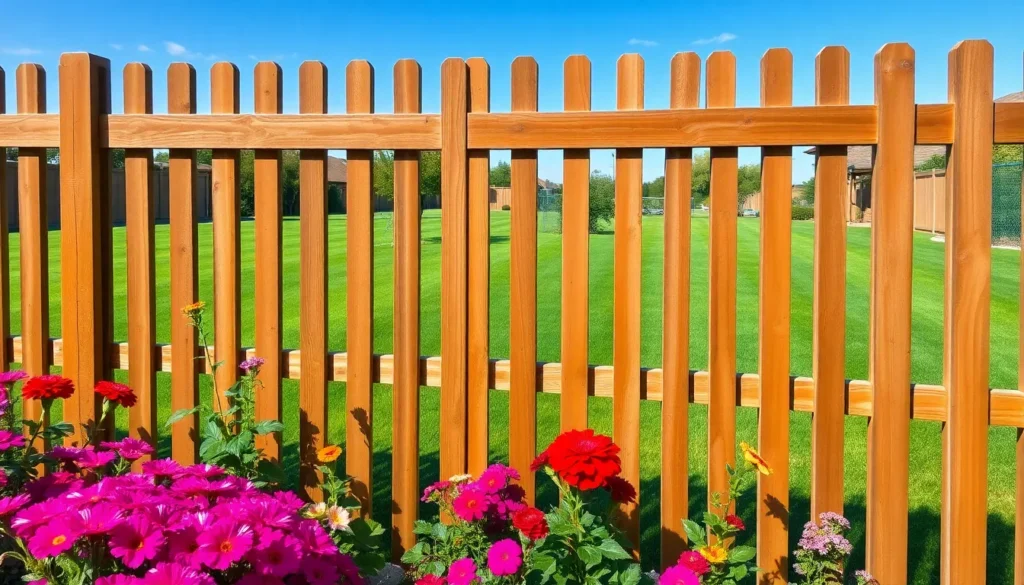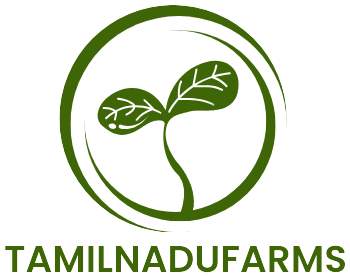Table of Contents
ToggleA garden fence serves more than just a boundary; it’s a statement of style and security. Whether it’s to keep pets contained or to enhance the beauty of a garden, the right fence can transform an outdoor space. With countless materials and designs available, choosing the perfect garden fence can feel overwhelming.
Beyond aesthetics, a well-constructed fence provides privacy and protection from unwanted visitors. It can also play a crucial role in defining garden areas and creating a sense of enclosure. As gardening enthusiasts look to elevate their outdoor spaces, understanding the various types of fences and their benefits becomes essential. Exploring the options can lead to a garden that’s not only beautiful but also functional and secure.
Types Of Garden Fences
Garden fences come in various materials and styles, each offering unique benefits. Understanding these options helps in selecting the right type for specific garden needs.
Wood Fences
Wood fences provide a natural appeal, making them a popular choice for gardens. They offer privacy and can blend seamlessly with greenery. Available in different types, such as cedar, pine, and redwood, they can be stained or painted to match garden aesthetics. Solid panel wood fences protect against wind and noise, while picket fences create an open feel. Regular maintenance, including sealing and staining, ensures longevity.
Metal Fences
Metal fences, including aluminum, wrought iron, and chain link, provide durability and strength. Aluminum fences resist rust and corrosion, making them ideal for various climates. Wrought iron fences add elegance and security, often featuring intricate designs. Chain link fences offer affordability and visibility, allowing unobstructed views of the garden. Metal options require less maintenance but may need periodic inspections for corrosion or damage.
Vinyl Fences
Vinyl fences offer versatility and low maintenance. They come in various styles, including privacy panels and picket designs, resistant to fading and cracking. Vinyl doesn’t require painting or staining, making it easy to maintain. Manufacturers often provide warranties, ensuring long-term durability. Overall, vinyl fences present a modern option for aesthetics and practicality in garden enclosures.
Benefits Of Installing A Garden Fence

Installing a garden fence offers numerous advantages, enhancing both functionality and aesthetics in outdoor spaces. From security to protection, garden fences can make a significant impact.
Security
Garden fences provide a physical barrier, deterring unwanted access and enhancing safety. They discourage intruders and help protect valuable plants and equipment. Selecting a taller fence can increase security, as it’s more difficult to climb. Opting for materials like wrought iron or wood reinforces the barrier, adding strength to deter intruders effectively.
Aesthetic Appeal
Garden fences can significantly enhance the visual aspect of an outdoor area. Fences come in various styles and materials, allowing for individuality in design while complementing surrounding landscapes. Choosing a decorative fence can create a focal point, blending functionality with beauty. For instance, a picket fence provides charm, while a trellis-style fence can support climbing plants, enriching the garden’s look.
Garden Protection
Garden fences safeguard plants from animals and harsh weather conditions. A solid fence prevents deer, rabbits, and other wildlife from foraging on plants. This protection ensures plants can thrive, leading to healthier vegetation and improved yield. Moreover, a fence can reduce wind exposure, protecting delicate flowers and vegetables from damage.
Factors To Consider When Choosing A Garden Fence
Selecting the right garden fence involves several critical factors. Each element affects the overall functionality and aesthetics of the outdoor space.
Height And Size
Height and size play a crucial role in fence selection. A taller fence offers increased privacy and security, while a shorter fence may provide visibility and openness. Consider the intended purpose when determining the height—four to six feet commonly suits residential gardens. Size also matters in terms of yard total area; larger spaces often require longer runs of fencing to maintain boundary integrity.
Material Durability
Material durability significantly influences the longevity and maintenance of a garden fence. Wood offers a natural look but may require more upkeep due to susceptibility to rot and pests. Metal options such as steel and aluminum provide robust barriers, with steel typically lasting longer than aluminum. Vinyl fences resist fading and don’t need painting or staining, making them ideal for low maintenance. Selecting a durable material ensures the fence withstands weather conditions and potential wear over time.
Budget
Budget considerations determine the feasible options when selecting a garden fence. Prices vary across materials, with wood often being more affordable initially but incurring higher long-term maintenance costs. Metal and vinyl fences typically present a higher upfront cost, yet they offer durability and longevity, resulting in lower maintenance expenses. Assessing the overall budget helps in making a decision that balances quality and aesthetic appeal within financial constraints.
Maintenance Tips For Garden Fences
Maintaining garden fences ensures longevity and enhances their appearance. Regular cleaning and timely repairs protect investments while preserving the garden’s aesthetic.
Cleaning
Cleaning garden fences prevents the buildup of dirt, mold, and mildew. Use a pressure washer or hose with a scrub brush to remove debris from surfaces. For wooden fences, a mixture of water and mild detergent effectively eliminates stains without damaging the finish. For metal and vinyl fences, a solution of vinegar and water or commercially available cleaners works well. Clean fences at least once a year, or more frequently in areas with heavy rainfall or dust.
Repairs
Addressing repairs promptly extends the life of garden fences. Inspect fences regularly for damage, such as broken boards, rust spots, or loose hinges. For wooden fences, replace broken or rotting panels using treated wood to ensure durability. For metal fences, sand down rust spots and apply rust-resistant paint to prevent further corrosion. Vinyl fences may require replacing cracked sections, which can be done easily with compatible replacement parts. Completing these repairs ensures continued functionality and enhances overall appearances.
Choosing the right garden fence is essential for enhancing both security and aesthetics in outdoor spaces. With a variety of materials and designs available, individuals can find options that suit their specific needs and preferences. The benefits of a well-selected fence extend beyond mere boundaries; they create a harmonious environment that protects plants and adds character to the garden.
Regular maintenance is crucial for preserving the beauty and longevity of any fence. By implementing simple upkeep practices and timely repairs, garden enthusiasts can ensure their fences remain functional and visually appealing for years to come. Investing in a quality garden fence not only enhances the garden’s charm but also provides peace of mind.


